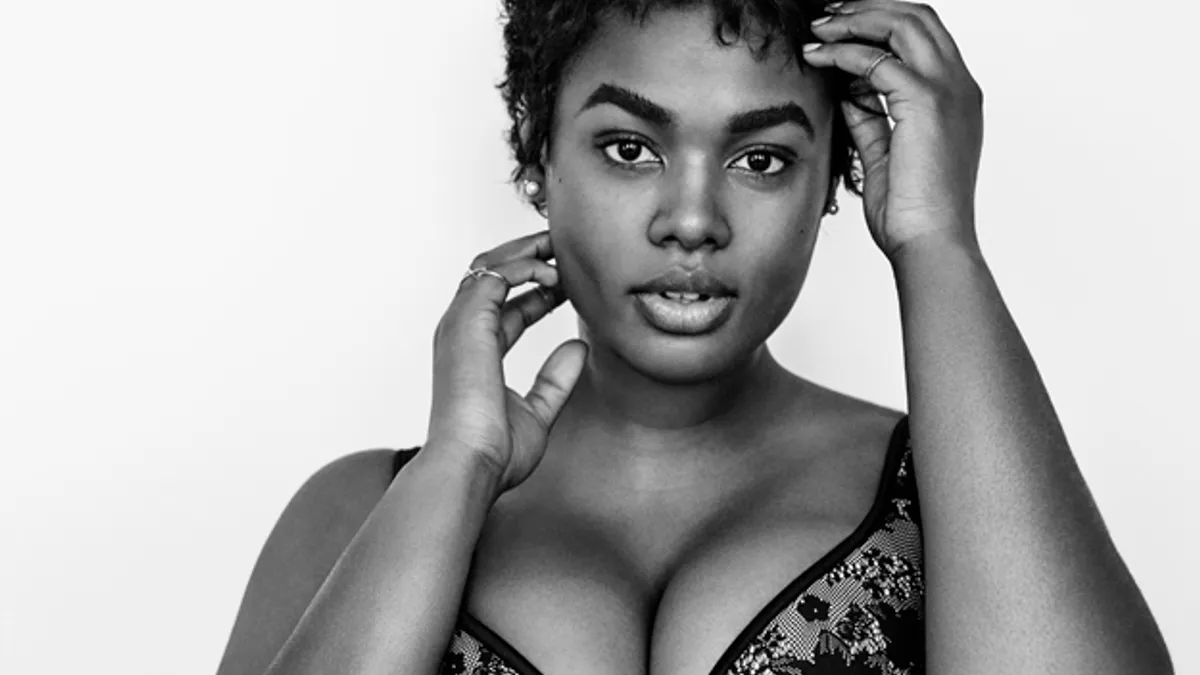Dive Brief:
- Plus-size apparel brand Lane Bryant and intimate apparel line Cacique released a new video that promotes body positivity, inclusivity and self-love and aims to empower women to embrace their "inherent beauty," according to a news release by the companies.
- The brands, which parted ways with the Victoria's Secret family 18 years ago, debuted the video to spread the message that women are "more than entertainment and that fantasies have no size."
- Cacique and Lane Bryant are also encouraging women inspired by the campaign to share photos of themselves on the brands' social media pages with the hashtag #WeAreAllTheFantasy.
Dive Insight:
Lane Bryant and Cacique are working to redefine traditional notions of sexiness and champion women of all shapes and sizes by depicting a more inclusive selection of women in their marketing. The timing of the video appears to be strategic, as it was released just ahead of the annual Victoria's Secret holiday fashion show on Dec. 2. It also follows backlash against Victoria's Secret after its CMO Ed Razek made offensive comments defending the show's decision to not cast plus-size or transgender women "because the show is a fantasy." The Lane Bryant and Cacique campaign's #WeAreAllTheFantasy hashtag is a rebuke to Razek's comments.
By not featuring more diversity in its marketing, Victoria's Secret is missing a key opportunity to connect with consumers who crave authenticity. The brand recently announced a new CEO, John Mehas, who is the current president of Tory Burch, to replace outgoing CEO Jan Singer, Adweek reported. The brand also announced plans to relaunch its swimwear line, which it discontinued in 2016. Victoria's Secret's sales have steadily declined over the past few years, and the company missed its Q3 2018 revenue projections.
Following the #MeToo and #TimesUp movements and the marketing industry's #SeeHer initiative striving to promote gender positivity, more brands are making a commitment to showcasing a more inclusive vision of beauty. CVS launched "Beauty in Real Life" earlier this year to introduce new standards for post-production photo alterations that will feature the "CVS Beauty Mark" to communicate that an image hasn't been materially touched up before hitting the stores.
Promoting realistic, inclusive images of women can be a winning strategy for connecting with consumers, especially Gen Zers and millennials, who are the most diverse generations and also tend to shun outdated portrayals of gender. Thirty-six percent of consumers say they like brands more when their ads go against gender stereotypes, and 25% say they'd be more likely to purchase from those brands, a Choozle study found.
Major global marketers, such as Procter & Gamble and Unilever, have announced initiatives to promote gender equality and are paving the path for other brands to follow. P&G brand Olay, for example, launched Face Anything in August to encourage women to be "unapologetically" bold, confident and true to themselves. The campaign included a 10-page spread in Vogue featuring nine diverse women, including plus-size model Denis Bidot, with each sharing a quality that they have been told they have "too much" of with the "too" crossed out.














